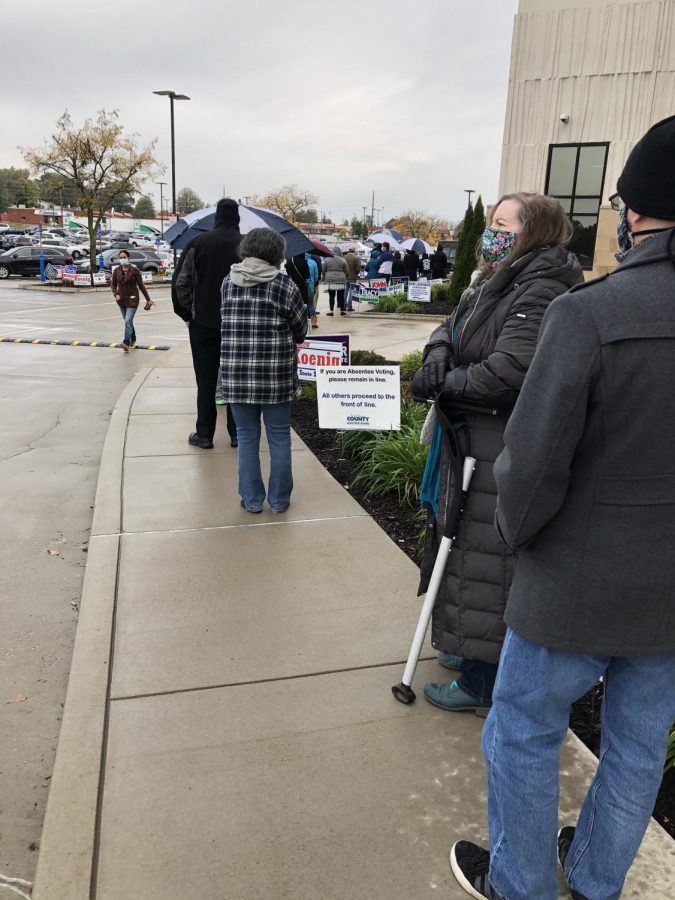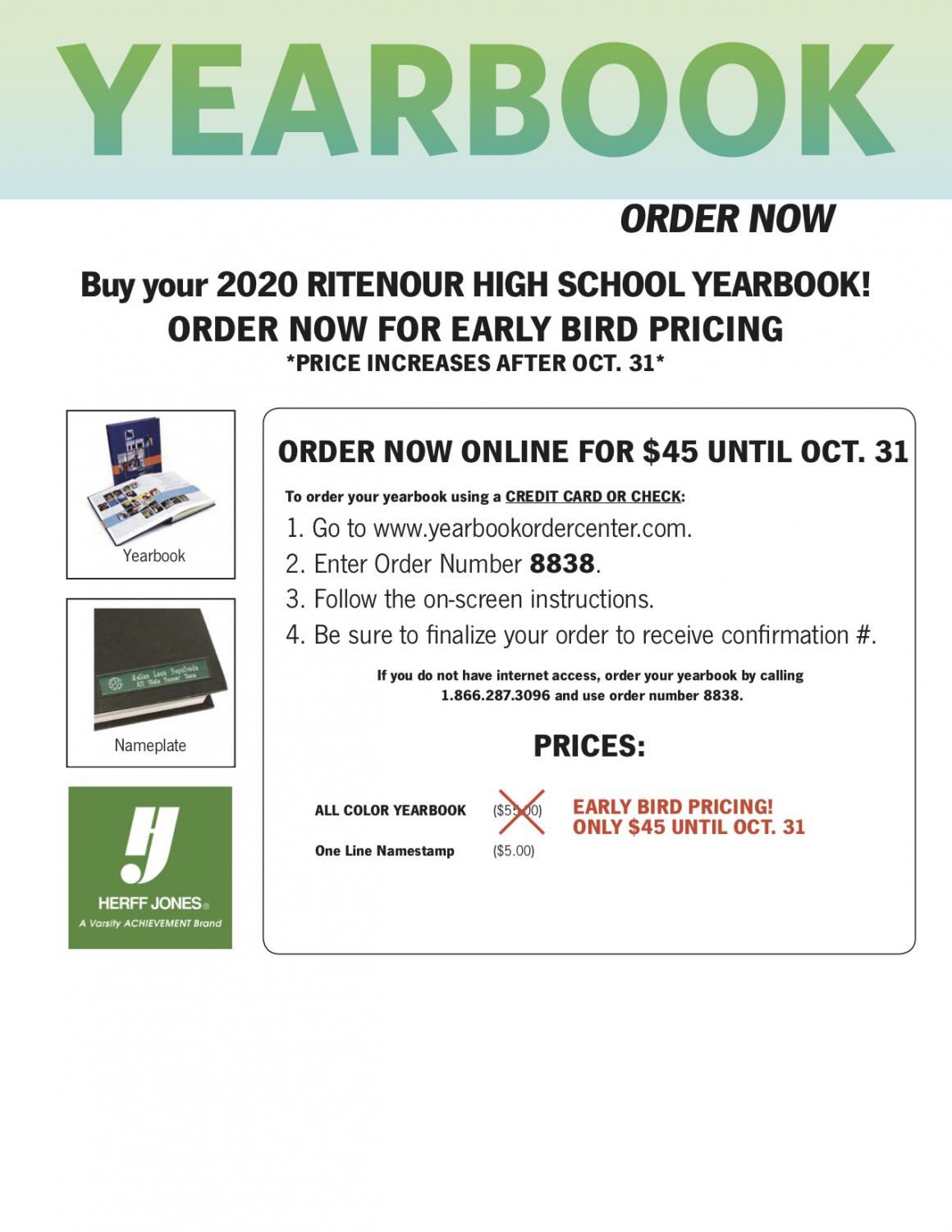Covid inspired absentee voting will likely mean record numbers
The politicization of COVID and the need for alternate voting opportunities is bringing out more voters
Voters wait in line at the County Government Center in Northwest Plaza for absentee voting. An expected increase in voting is happening due to the presence of COVID-19, so absentee voting has expanded in this presidential election cycle.
November 3, 2020
In a year that has been completely transformed by the country’s response to COVID-19, the entire future of voting might be changing as well.
In an interview with Reuters, Dr. Michael McDonald, an associate professor of political science at the University of Florida, said that this year’s election could bring a record-breaking turnout.
McDonald predicts the 2020 election will be decided by 150 million voters, or a 65% turnout of registered voters. If this prediction is correct, not only would the November election surpass the 2016 presidential election by 10 million voters, it would reflect the highest voter turnout percentage of any general election since 1908.
One factor McDonald attributes to the influx of voters is the accommodations states are making because of the COVID-19 pandemic.
With remote methods like mail-in ballots being expanded, the process of registering for, in addition to actually casting ballots, has made voting more accessible than ever.
Government teacher David Bishline believes that the need to update voting options
due to the pandemic is going to make people feel more connected to the process.
“It is awesome to hear that a record turnout is expected. The more that vote the better chance we have to make our democracy work. One of the biggest reasons I do believe in record turnout is that many people are starting to vote early or in the mail. I think that is helping numbers [to rise], plus I think with all that has happened since March, people on both sides feel the need to have their candidates in power,” Bishline said
An estimated 6 in 10 Americans are expected to vote in-person, while 4 in 10 Americans are predicted to vote by mail.
Republicans and Democrats are expected to take different approaches when voting. A reported 8 in 10 Republicans claim they will vote in person. Only 40% of Democrats have reported to do the same.
Another potential reason for the increased participation is an increased political interest in voters. According to an August Pew Research survey, a record setting 86% of Democrats and 85% of Republicans say the outcome of this year’s election matters.
Compared to the 2000 election, only 50% of voters thought the elected candidate would have a different impact in their presidential term compared to their opponent.
“If you look back at a good number of elections in American history we have heard that ‘this is the election of your lifetime.’” Bishline said. “I listen to a podcast called ‘Wicked Game.’ It is about presidential elections in the past. If you think that politics is bad now, in a good number of elections things have been as bad or worse. I would say that all presidential elections are important. I do feel we are at a turning point in American history where many Americans are tired of the status quo and the injustices that are occuring that they want a change. In my lifetime, I have not seen a presidential election where people are so set on one candidate like this one. I think I saw an article that only 2-5% of people are undecided. That is a crazy small amount. What is interesting about this election and specifically President Trump, is people either love him or really do not like him.“
77% of Republicans and 78% of Democrats have claimed to think “quite a lot” about this year’s presidential election.
I’ve been counting down the days until I was 18 and could vote since I was like, 13,” first-time voting senior Isabelle Rohlfing said. “I think that the pandemic and people seeing the way politicians handle certain things has encouraged them to have a voice. For me, learning about suffrage and the struggle for minorities in the United States to gain the right to vote really pushed me to register. People fought for this right for years that I have without even trying; I would feel awful to ignore that. I believe that it is important for every person to have a voice in who governs us.”
Similar to Rohlfing, Bishline also believes that the pandemic has influenced voters to participate.
“I do think some people feel that leadership at all levels and both parties have failed the American people. That is both sides and at all levels. The pandemic, like most things in the world, has become politicized,” Bishline said. “So, anytime you politicize something of this magnitude it will get people to vote. I want to say this will affect future elections, but you never know. Once the pandemic ends and we return to a more normal lifestyle, people may forget or maybe view voting as not as important.”
More than 4.7 million Americans have already cast their vote, which in states such as Wisconsin and Virginia, has exceeded the total number of ballots cast in the 2016 election by 15%. By voting, an individual is able to represent their diplomatic stance.
Because the political propositions with the most votes are materialized, an increase in participation means voting can function more effectively. If a larger portion of the population votes, the percentage of votes more accurately represent that population’s desires.
“Voting is incredibly important,” history teacher Joe Scheidler said. “It symbolizes ‘the will of the people’. The economy, tax laws, national security, public health, and safety is all impacted with who we vote for. Our representative democracy, or republic, is the envy of the world and the act of citizens voting is a huge part of it.”
If this year’s voter trend continues, the efficiency of the 2020 election could set a precedent for future elections to come.
“Our government is chosen based on the idea of ‘one man, one vote.’ A change in government officials could mean a change in the system. In order to make that change, everybody who can vote, has to vote. Voting is the best way to let your voice and opinion be heard,” Rohlfing said.



